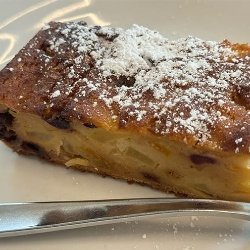She received some documents from Switzerland for processing her payment the day after she traveled there to give a concert, and saw that one of the questions asked what religion she was, which perplexed her. If she answered “none” or “prefer not to answer”, would it affect her payment? We laughed about it, but I don’t know what happened after that.
Ever since I first moved to Italy and still today, one of the things people always ask me about is my religion.
After all, the headquarters of the Catholic Church, Vatican City State is located within the city of Rome.

For the Italians, Catholicism is an intimate part of daily life that starts from the time they’re born and continues until death. But Italy shares borders with other European countries that are seeing an influx of immigrants from the Middle East and Africa, which is causing major changes to the Italian way of life. And the fact that there are often differences in religion plays no small role.

The consulate now sends out an email before Ramadan starts, and Italians who have hired Islamic workers say that they should keep the religious holiday in mind.

Then there are the children receiving long-term care in the pediatric hospitals. There are now more Middle Eastern and Indian children in Italian hospitals, and their foreign-born parents make food at home to take to them in the hopes that they’ll eat better (since they’re not used to eating hospital food or even Italian food). However, the aromas from these unfamiliar dishes are apparently too intense for the Italian patients.
According to the Italian mothers of children who attend public elementary and junior high schools, more than half of their sons’ and daughters’ classmates are from other countries. That was a fact that surprised me.

The Mudec museum in Milan is always hosting interesting exhibitions, and I went there the other day. They’re currently running one titled Impressions of the East that looks into Japonism, and right next to it is a display titled When Japan Discovered Italy.

The exhibition clearly reveals that Japan closed its borders for more than two hundred years because of concerns that Christianity was taking hold, and makes clear the culture shock that occurred once it reopened to the West.
It’s so fascinating to think about the culture shock that Japan experienced following the sakoku period, as well as the culture shock that the West experienced when it actually got to see what a country they had only imagined was really like.

There’s no doubt that when artists like Van Gogh, Gauguin, Toulouse-Lautrec, and Monet saw woodblock prints by Katsushika Hokusai it was one of the most intense experiences of their lives. They soon began imitating the techniques, compositions, and methods of expression that they had never seen before.

Japan was this mysterious country of the East, isolated and unknowable despite their burning curiosity.
These encounters are so important.
And it is so important that we really get to know one another.




















































